Zagreb Kneeling Men Met by Croatian Women's Network Counter-Protest
February 4, 2023 - If you live in Zagreb or were lucky enough to visit on the first Saturday of the month in the last four months, you might have witnessed the unforgettable sight of a bunch of fully grown men kneeling in the Ban Josip Jelacic square, praying in unison. This Saturday, the Zagreb kneeling men were met with a counter-protest by the Croatian Women's Network, joined by MEP member and SPF presidency member Fred Matić.
As 24Sata writes, the Zagreb kneeling men organized another one of their protests at the Ban Josip Jelacic Square, praying for the chastity of women in Croatia. This time, though, they were met by a counter-protest of the Croatian Women's Network on the Square, in which Fred Matić was one of the participants.
He pointed out that he is afraid that the Zagreb kneeling men are a prelude to what happened not that long ago in Poland, which resulted in the ban on abortion and encroachment on other women's rights.
"I came to support these people standing around me. What is happening on the other side of the Square is irresistibly reminiscent of Poland and Hungary, and when we mention those two countries, we have no reason to be too optimistic. In addition to so many problems and so many women who are beaten and killed every day, the biggest concern in Croatia is how women dress, whether they will be polite, or whether they will cook them lunch. It would be smarter to show women that they are equal and that they love their wives. Many Iranians are not proud to be Iranian because of all that is happening in their country. Only in Croatia can you see people who want to be those Iranians, and we will not allow them to do that. I stand very proudly on this side of the Square. I have nothing against anyone praying. What is hidden behind those prayers, however, we have seen where it leads historically - to the bonfires. As long as I am alive and engaged in politics, I will not allow my female colleagues, wife, and sister to be treated as secondary. Women are certainly not to blame for what Croatia is like. I think that women bring an additional quality of life and lead to betterment. All these prayers and stories of theirs cause a quiet chill in me. They take us back to the Middle Ages", concluded Matić.
For more, make sure to check out our dedicated News section.
Exceptional Women in Croatian History You Should Know About
March 8th, 2022 - As we celebrate International Women’s Day, a tribute to some of the most remarkable women in Croatian history
Artists, performers, freedom fighters: Croatian history boasts many exceptional women. In a time when a woman’s role in society was mostly limited to that of a dutiful wife and mother, these fierce ladies boldly defied social norms, mastering their respective crafts, standing for their beliefs and sharing their talents with the world. This is in no way a definitive list, but only a glimpse into the many stories of inspirational women out there, starting with seven Croatian ladies you should definitely know about:
Ivana Brlić Mažuranić (1874 - 1938)
Dubbed the Croatian Hans Christian Andersen, Ivana Brlić Mažuranić rose to fame as one of the most popular Croatian writers for children.
Born to a noble family in Zagreb, Brlić-Mažuranić first tried her hand at writing educational essays and poetry. It wasn’t until 1913 that she captivated the public with a novel entitled The Marvellous Adventures and Misadventures of Hlapić the Apprentice (Croatian: Čudnovate zgode šegrta Hlapića), which quickly became one of the most loved books of children’s literature in Croatia and has retained its status to this day.
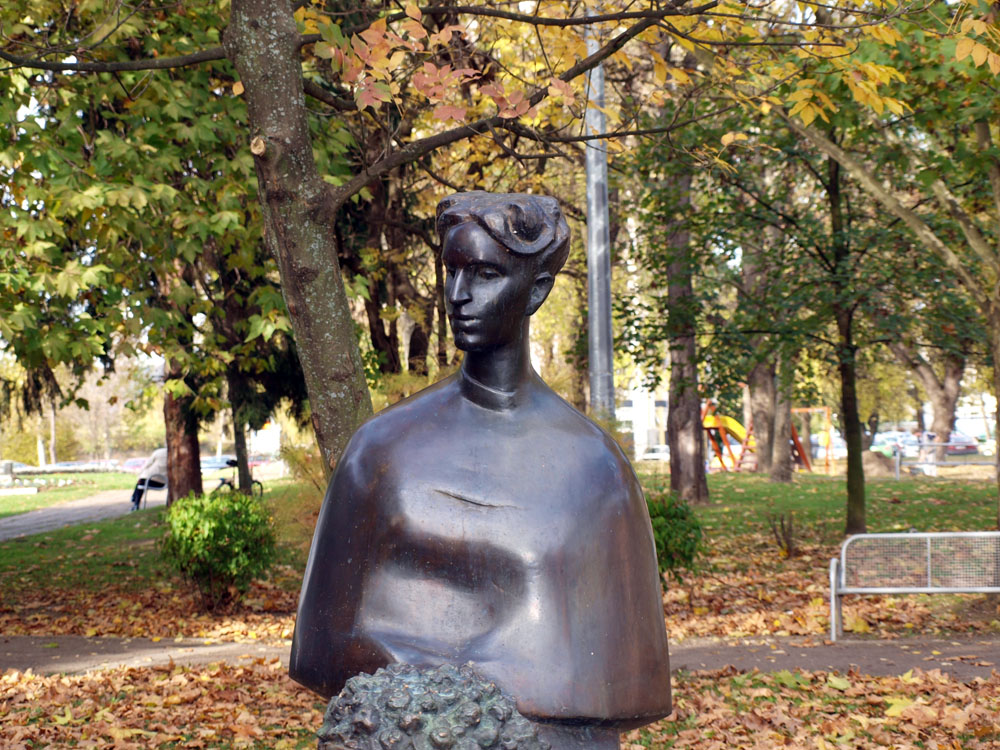 Bust of Ivana Brlić Mažuranić in Slavonski Brod / Frka, Creative Commons
Bust of Ivana Brlić Mažuranić in Slavonski Brod / Frka, Creative Commons
Her other best known work followed several years later: Croatian Tales of Long Ago (Croatian: Priče iz davnine), a collection of imaginative fairy tales rooted in Slavic mythology and folklore.
Brlić-Mažuranić was nominated for the Nobel Prize for Literature four times in a single decade, and was the first woman to be accepted into the Croatian Academy of Sciences and Arts as a corresponding member.
Slava Raškaj (1877 - 1906)
Slava Raškaj was a renowned Croatian painter, remembered as our greatest watercolorist of the late 19th century.
Deaf-mute since birth, Raškaj spent her childhood in Ozalj and was sent to a school for the deaf in Vienna at the age of eight. That’s where she first learned to draw, later going on to master the watercolour technique she'd become known for.
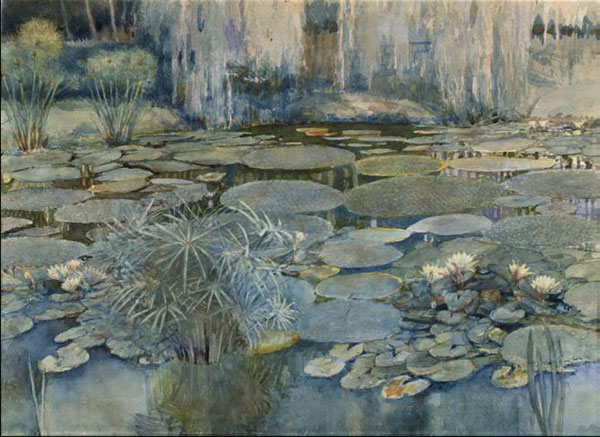 Slava Raškaj, Lillies
Slava Raškaj, Lillies
Her artistic talent was recognised by a local teacher who encouraged her to seek a mentor after she returned to Croatia at the age of sixteen. Turned down by Vlaho Bukovac who was simply too busy at the time, she started training under the renowned painter Bela Čikoš Sesija in Zagreb.
Raškaj soon embraced plein air painting, capturing outdoor scenes and landscapes in her ethereal watercolours. Her work was exhibited in Zagreb, Paris, Moscow and Saint Petersburg, and ranks among the best in Croatian art.
Nada Dimić (1923 - 1942)
Nada Dimić was a national heroine who fought with the Yugoslav Partisans in WWII.
Between the ages of 16 and 18, Dimić joined the Communist Youth and the Communist Party of Yugoslavia, joined the partisans as their first notable female member, took on special assignments, worked as an undercover agent, and coordinated partisan actions in Sisak and Karlovac.
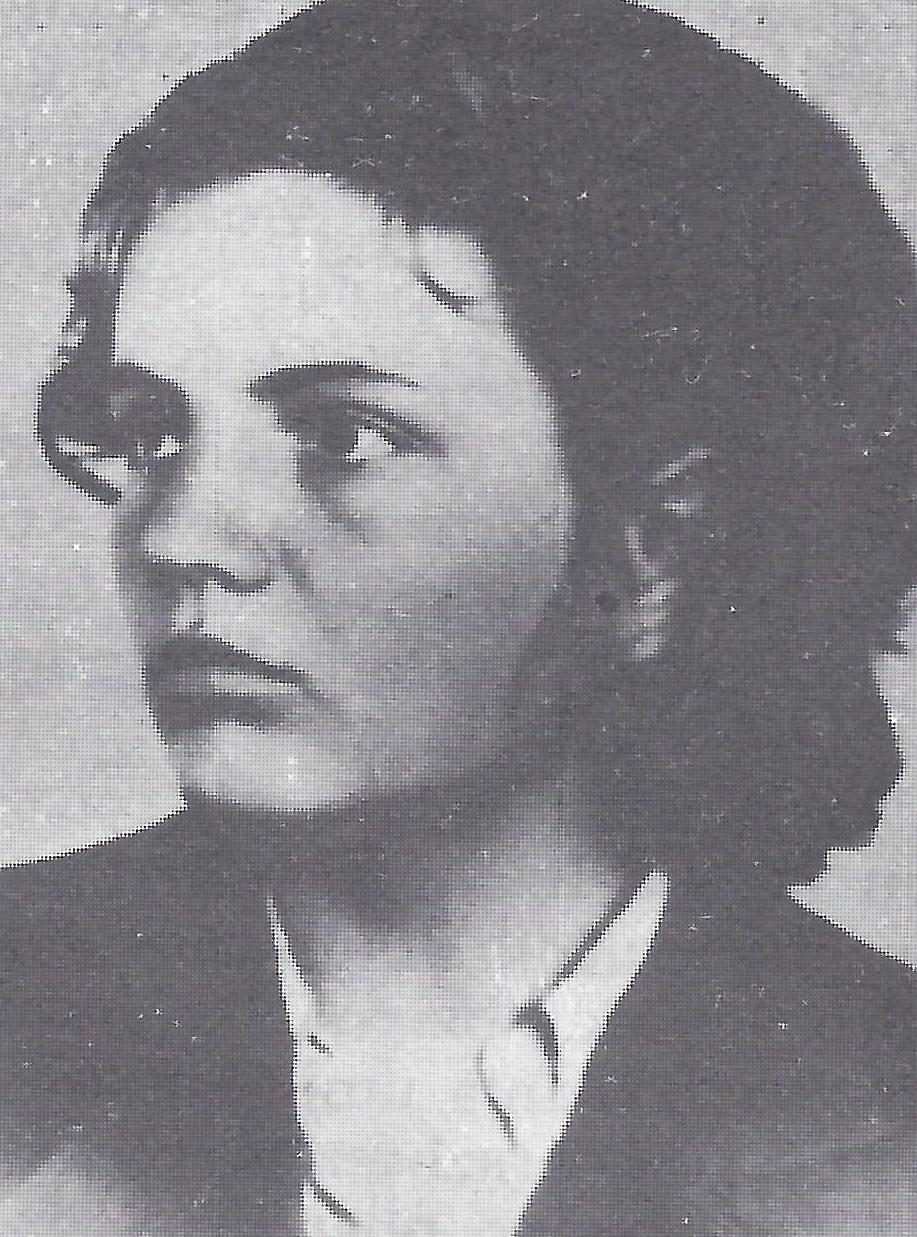
During that time, she was captured by the Ustasha and incarcerated on several occasions. In 1941, Dimić was imprisoned in Zagreb for two months, never revealing her real name despite all the torture and interrogation she was forced to endure. She was then sent to Stara Gradiška concentration camp, where she was murdered at the age of 18.
After the war, Dimić was posthumously declared a People’s Hero of Yugoslavia. Streets, schools and factories were named after the fearless heroine, including a famous textile factory in Zagreb (closed in 2000).
Dragojla Jarnević (1812 - 1875)
Dragojla Jarnević was a poet, teacher and a fierce patriot, remembered as one of the most notable members of the Croatian national revival movement.
Jarnević wrote and published impassioned patriotic poems and essays, but her most famous literary work is a personal diary she kept between 1838 and 1874. In over 1,200 pages of autobiographical notes, she also recorded her personal opinions of her contemporaries and various political events.
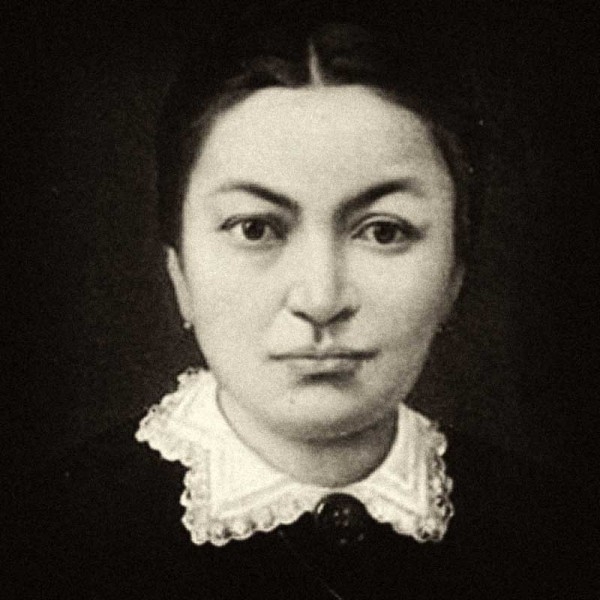
A lesser known fact about Jarnević is that she’s considered to be the first female mountaineer and rock climber in Croatia. In 1843, she famously climbed the Okić peak from the southern, steeper side of Plešivica mountain without any mountaineering gear. The trail was later named Dragojla in her honour.
Marija Jurić Zagorka (1873 - 1957)
Widely known by her pen name Zagorka, Marija Jurić was the first Croatian female journalist and one of the most read Croatian writers.
Zagorka was a patriot, feminist and activist who wrote for numerous papers and journals, including a few she herself established. As a reporter, she covered major political events in the region; she was also a relentless advocate of women’s rights and toured the region holding public lectures on the subject.
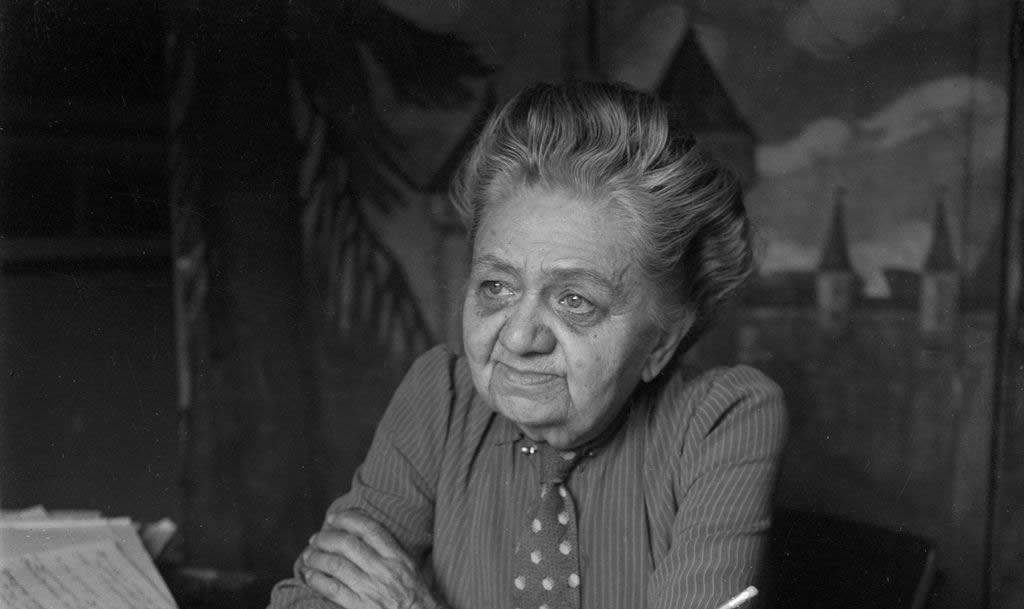
She’s an author of two dozen novels, including Gordana, the longest novel in the history of Croatian literature that counts over 9000 pages in 12 volumes. Her fiction, best described as a blend of Croatian history, adventure and romance, made her extremely popular with the readership.
Even though 11 of her novels (in Croatian) are kept at the Library of Congress in the US, none of her work has ever been translated into English.
Dora Pejačević (1885 - 1923)
Born into the famous noble family from Slavonia, countess Dora Pejačević grew to become one of the most renowned Croatian composers of all time.
As the family were known as distinguished patrons of the arts, especially music, the countess was encouraged to nurture her music talent from an early age. She first received piano lessons from her mother, and even though she went on to study music in Zagreb, Dresden and Munich, she is thought to be mostly self-taught.
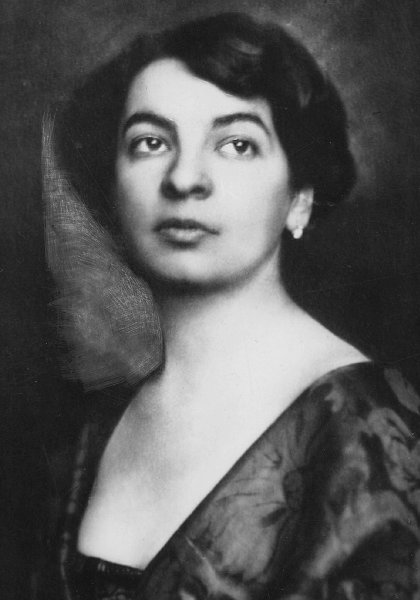
Pejačević composed the first modern symphony in Croatian music (Symphony in F-sharp minor), and is known as the author of the first Croatian piano concerto.
Mia Čorak Slavenska (1916 - 2002)
Mia Čorak Slavenska was the first Croatian dancer to ever become a prima ballerina - and arguably the greatest Croatian-born ballet dancer of all time.
Čorak trained from an early age, first taking the stage when she was five years old; at thirteen, she was already performing as a soloist. She took on the pseudonym Slavenska after she moved to Paris in the 1930s, where she soon joined the Ballet Russe de Monte Carlo.
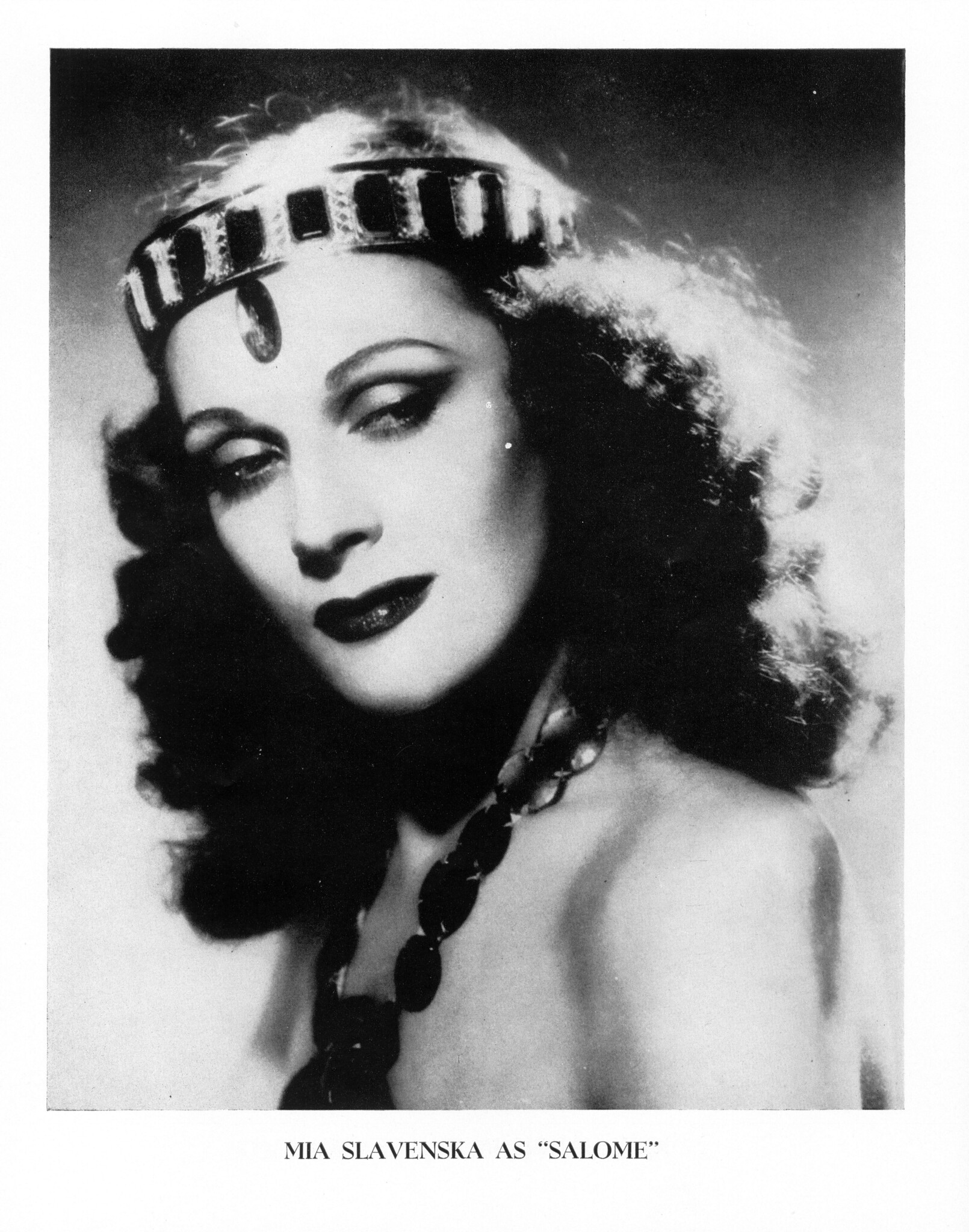 Mia Slavenska / Patrick, Flickr
Mia Slavenska / Patrick, Flickr
In the 40s, Slavenska moved to the US where she continued to dance principal roles, touring with smaller ballet troupes. After she retired as a performer, she went on to work as a reputable teacher and choreographer in New York and LA.
Milka Trnina (1863 - 1941)
Milka Trnina was a renowned opera singer who gained international fame performing in major opera houses all over Europe and the US, including the Metropolitan Opera in New York.
Trnina studied in Zagreb and Vienna, then went on to perform as a dramatic soprano in Leipzig, Graz, Bremen and Munich, over time gaining a reputation of an exceptional interpreter of Wagner and Puccini. She appeared at the Royal Opera House in Covent Garden in several roles, and debuted at the Met in 1900.
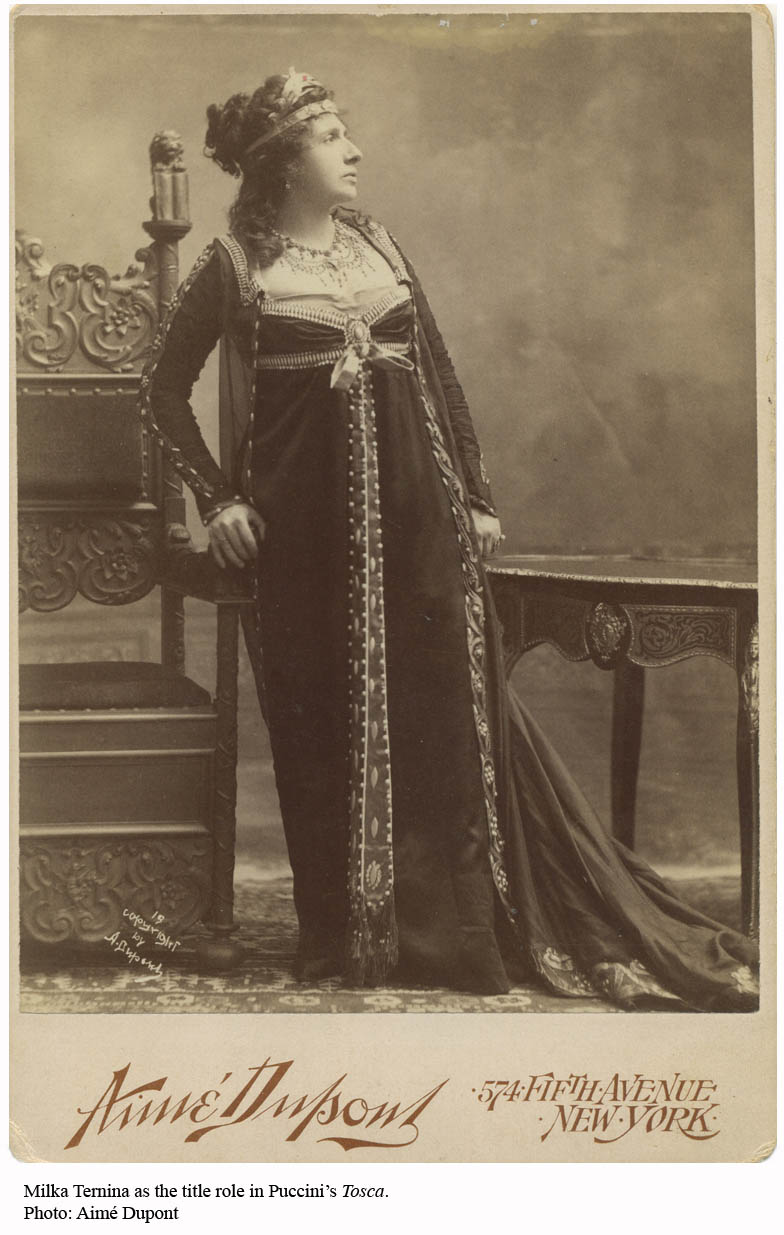
After Puccini himself attended one of her performances in London and described her interpretation of Tosca as ideal, Trnina's reputation was solidified as the most distinguished exponent of this particular title role.
Her career was cut short by an attack of facial paralysis which prevented her from maintaining her exceptional level of performance. Trnina thus retired from professional singing at the peak of her fame and moved into a teaching role, her best known pupil being Zinka Milanov who'd follow in her mentor's footsteps and also appear at the Met.
Zagreb One Billion Rising Event: Every 15 Minutes, a Woman Experiences Violence
ZAGREB, 13 Feb 2022 - Croatian women's organisations on Sunday joined for the tenth time the "One Billion Rising" global campaign to end rape and sexual violence against women, as part of which, during an event staged in downtown Zagreb, they said that in Croatia, every 15 minutes a woman experiences some form of violence.
"This year the campaign is dedicated to the fight against violence that destroys women, but also our planet", said the regional campaign coordinator, Zagreb City Assembly member Rada Borić, who pointed to the need to raise awareness of the widespread violence against women.
"One billion women worldwide are abused at this moment, and Croatia is unfortunately no exception, but one billion trees have been felled, rivers and forests have been devastated," she said.
She warned that every 15 minutes, a woman experiences violence in Croatia and that rulings in such cases are quite inappropriate which in a way, encourages the perpetrators.
Three women killed since start of year
"The message is that there is no excuse for violence - even if that someone is a good neighbour or jealous or defender or county head..." Borić said, noting that Croatia has more killed women per million inhabitants than France.
Gender Equality Ombudswoman Višnja Ljubičić, too, pointed to the discouraging national statistics.
"In the first 40 days of this year, three women have been killed, three women have been held captive and there have been several cases of attempted murder and threats with weapons, which shows that 2022 will be marked by femicide," Ljubičić said.
"In 2021, 30 people were murdered - 16 men and 14 women. In 90% of the cases men were killed by other men, while the 14 women were killed by 11 men close to them", Ljubičić added.
Sentences for perpetrators too lenient
Ljubičić also warned that sentences for perpetrators were too lenient, noting that of 1,200 verdicts, less than 10% envisage imprisonment for gender-based violence, while in most cases, the punishment is conditional or a fine.
The Zagreb event's organisers called for working together on the prevention of violence and on raising awareness of the problem through systematic education and institutional cooperation.
This month events dedicated to raising awareness of the problem of violence against women are held also in other Croatian cities, and they will also be held on International Women's Day, 8 March, and Earth Day, 22 April.
For more news about Croatia, CLICK HERE.
FM Says Croatia Strongly Committed to Women, Peace and Security Agenda
ZAGREB, 20 Nov, 2021 - Croatia is strongly committed to the implementation of the Women, Peace and Security Agenda both regionally and globally, Foreign and European Affairs Minister Gordan Grlić Radman said on Friday on the margins on an international security conference in Halifax on Friday.
The Croatian minister is taking part in the Halifax security forum which discussed among other things the Women, Peace and Security ("WPS") agenda, which was formally initiated by the UN Security Council Resolution 1325 (2000), adopted on 31 October 2000.
Croatia is aware of a huge burden carried by women during conflicts and also of women's crucial role in putting an end on wars, and in peace-building and post-conflict management, Grlić Radman said underscoring Croatia's strong commitment to the implementation of the above-mentioned agenda both at the local level and globally.
Over the recent years, Croatia has hosted and financed a series of workshops and training courses for police officers from third countries and thus helped in the preparation of more than 50 women from Africa, Asia, South America and Europe for their participation in UN peace missions.
4 in 10 employees in Croatia's intelligence services are women
The minister underscored that 40% of the staff employed in Croatia's intelligence services are women. Also, women make up 13% of active service-people in the army, and 50% of state officials and staff are women.
Croatia's female military officers are engaged in peace missions and operations worldwide.
Over 400 Croatian women have participated in those missions since 2003 when the first service-women joined the first Croatian contingent in the ISAF mission in Afghanistan.
The Croatian minister is attending the 2021 Halifax Forum, which is being held from 19 to 21 of November with six plenary discussion on COVID-19, climate change, globalisation, China, a new security architecture and asymmetric threats.
For more on politics, follow TCN's dedicated page.
For more about Croatia, CLICK HERE.
Awareness Campaign About Women's Unpaid Household Work Launched
ZAGREB, 7 Sept, 2021 - A network of civil society organisations called "Fourth Shift - Invisible Work" on Tuesday launched a campaign to raise awareness of women's unpaid household work and encourage the creation of public policies to achieve a work-life balance for women and men.
The campaign is part of the project "The impact of public policies on the quality of family and working life and on the demographic picture of Croatia," led by the women's civil society organisation B.a.B.e.
The value of the project is HRK 3.6 million (€480,000), of which 85 percent is provided by the EU and the rest by the government. Its duration is 36 months, and it is being conducted in Zagreb and eight other regions.
The organisations have invited women to join the campaign by sharing their stories on what happens when they stop doing their everyday chores. They can share their stories and photographs on the Instagram and Facebook accounts of B.a.b.e. and the Twitter account of Iskra B., or if they want their post to remain anonymous they can send an email to This email address is being protected from spambots. You need JavaScript enabled to view it..
The organisations wonder what kind of chaos would happen if women in Croatia stopped ironing, cleaning, cooking, doing the laundry and taking care of children. They say that such a scenario is indicated by the results of a 2017 survey carried out by sociologist Ksenija Klasnić.
The survey revealed that in 83 percent of the cases examined all or the majority of routine household tasks are performed by women, in 16.6 percent of cases partners equally share household chores, while men do housework on their own only in 0.4% of cases.
In 58.4 percent of cases, all or most work relating to child care is done by women, while men take care of children on their own only in 0.2% of cases. In the rest of the cases women and men share their child care duties.
For more about politics in Croatia, follow TCN's dedicated page.
Women and Technology Program: Gender Inclusive Museum on the Go
Aug 27, 2021 -The Women and Technology Program aims to raise awareness of women's contribution to science and technology through a virtual exhibition for the Nikola Tesla Technical Museum.
Established in 1995, the Centre for Women’s Studies in Zagreb is the first non-institutional educational center in Croatia.
Founded by a group of feminists, theorists, scholars, peace activists, and artists, the goal is to provide an interdisciplinary program and expert knowledge on women’s issues, becoming a meeting point for academic discourse, artistic practice, activist engagement, and more.
One example of this non-institutional research and education is the project „Women and technology – Towards the Gender Inclusive Museum“which encourages young people (under 25) to engage in the promotion of the gender-inclusive approach at the museum. Cultural and artistic content, as well as active participation on webinars, have a goal of allowing young people to co-create virtual museum displays with respect to a gender-inclusive approach.
The Nikola Tesla Technical Museum (TMNT) is the partner of the program, as the participants are creating a virtual display for this particular Zagreb museum. The project, as the museum informs, will last until March 2022.
„The project is focused on reinterpreting displays that will acknowledge women's contribution to science and technology and open new perspectives and curator practices. It is important to enroll young people in the process to raise awareness of the need, as well as the possibility of changing the dominating narrative. To do this, they need basic knowledge and skills on museology, design, and art," says the Centre for Women’s Studies in Zagreb website.
The website adds that the question of gender inclusiveness has become more and more relevant in museum practices. Last year's edition of the International Council of Museums (ICOM) magazine, which deals with research, conservation, continuation, and communication to society of the world’s natural and cultural heritage, present and future, tangible and intangible, made „Gender and Museums“ the main topic. With ICOM's panel of experts prescribing professional and ethical standards for museum activities on an international level, the topic is an agenda for any museum that wants to uphold its reputation to address.
The virtual display will be connected to the current, physical one of the TMNT's, with QR codes being the connecting point. Webinars and workshops, apart from teaching skills to make the virtual display, will also provide historical education on the women contributing to science and technology.
Marking International Women's Day 2021, TCN earlier this year published an article on Croatia's most influential women. In addition, as women's rights in Croatia, as well as in the world, still face challenges (which includes the USA), American-Croatian psychology professor specialized in women issues, Mala Matacin, gave an interview to TCN referring to the issues women face in Croatia and the US.
Learn more about Croatian inventions & discoveries: from Tesla to Rimac on our TC page.
For more about Croatian history, follow TCN's dedicated page.
Women Work One Month For Free, Says MEP Glavak
ZAGREB, 14 July, 2021 - Women work one month for free due to lower wages and their total income, and consequently their pension, is lower because they care for children and the elderly, Croatian MEP Sunčana Glavak (EPP) said on Wednesday.
She was speaking at an event at Plitvice Lakes which discussed how to strengthen the position of women in Croatia and Europe, held as part of the Conference on the Future of Europe.
Glavak said a division into men's and women's departments was not felt in the EP because the persons there were competent, but added that a balance had not been achieved anywhere in Europe.
She called on citizens to engage in a debate on that and other European topics via the Commission's platform “futureu.europa.eu.”
Prime Minister Andrej Plenković said four women ministers in Croatia's 18 government departments was not enough, but added that they "run important departments and make a big contribution to this government."
He boasted that Croatian women hold high positions in European institutions - Dubravka Šuica is a Commission vice president, Marija Pejčinović Burić the Council of Europe secretary-general, Ivana Maletić a judge at the European Court of Auditors, and Maja Markovčić Kostelac the head of the European Maritime Safety Agency.
"As a government, we will continue to make an effort towards empowering and protecting women, towards equality and women's participation at a higher level and a high representation percentage," he said.
Present at the Plitvice conference were Tourism and Sport Minister Nikolina Brnjac, Culture and Media Minister Nina Obuljen Koržinek, Regional Development and EU Funds Minister Nataša Tramišak and Agriculture Minister Marija Vučković, while Šuica and EPP Women President Doris Pack participated virtually.
For more about politics in Croatia, follow TCN's dedicated page.


